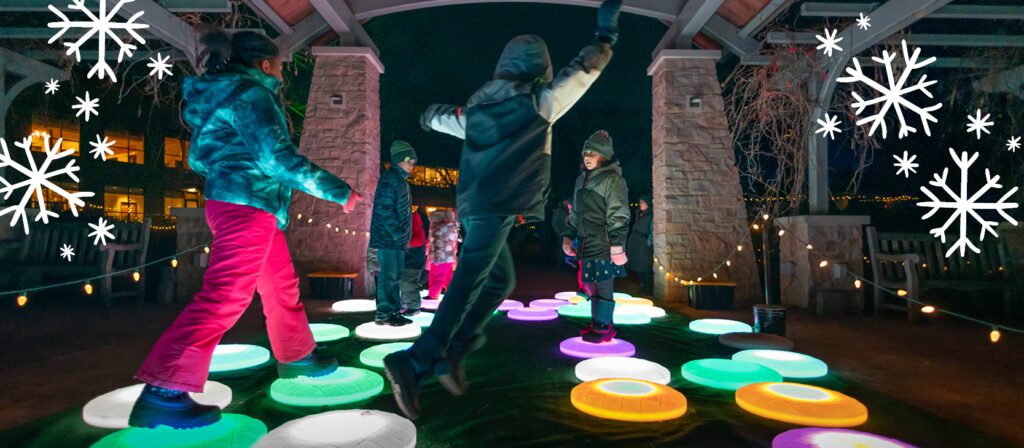Anyone has who a garden may have seen bumble bees and honeybees buzzing about at the start of October. While bugs were beginning to slow down, they were still out and about, gearing up for winter. Now their activity has ceased, and we don’t see any bees or butterflies flitting about anymore. Why is this? Where exactly did all of the animals go now that it’s cold?
Unlike most of us, animals and plants don’t have heated homes to hide in! Wild animals are outdoors and doing their best to survive the cold conditions in different ways.
Animals typically have four strategies for what to do during the winter: hide away, move away, ride it out, or simply reproduce and pass on. Depending on the type of animal, their winter survival strategies will be different, so let’s start by covering the different groups of mammals we see.
Mammals
Mammals like rabbits and mice can be seen scurrying, climbing and digging in preparation for fall. Much like us (humans are mammals), mammals have an easier time than some of the other groups. This is because they are usually quite mobile, and they generate their own body heat. Their most well-known trait, their fur, acts like a coat to keep them warm. Some mammals’ coats will even grow thicker and denser during the winter as a barrier to the cold temperatures.
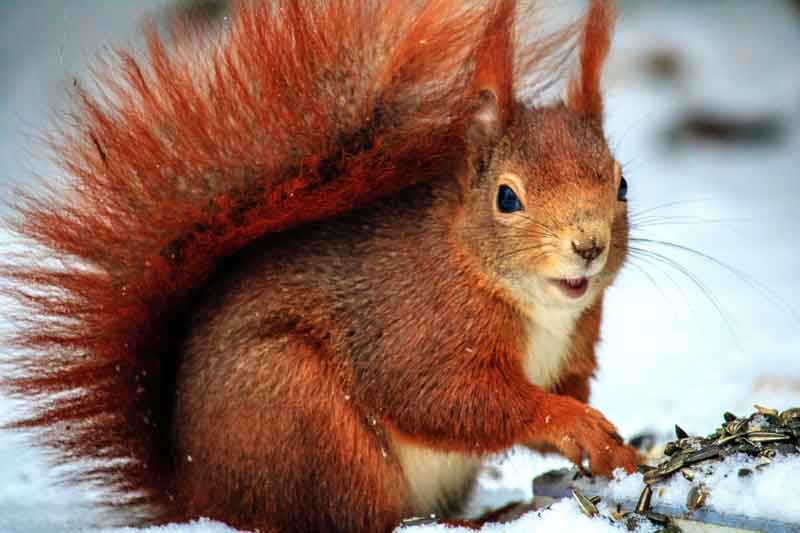
Squirrels
Some of the most active mammals are the squirrels, which are some of the most iconic animals of Autumn. Wisconsin has 2 species each of flying squirrels and ground squirrels (as well as of chipmunks). We also have 3 species of tree squirrels, which are the large bushy-tailed ones that we usually think of and see running around.
These clever critters forage for food as the season starts to turn cold and begin hoarding it and storing it in several different sites. Part of the reason they do this is because tree squirrels do not go into hibernation or torpor (keep reading to find out more about this winter survival technique). They stay semi-active during the season. If you’re lucky, you may see squirrel nests which are bushels of leaves that look similar to bird nests but are often larger and rounder. Squirrels will be hiding away while relying on the food they’ve cached to stay energized throughout the winter. Beavers will also store up a larder of food to keep them set throughout the cold months, as they do not hibernate either.
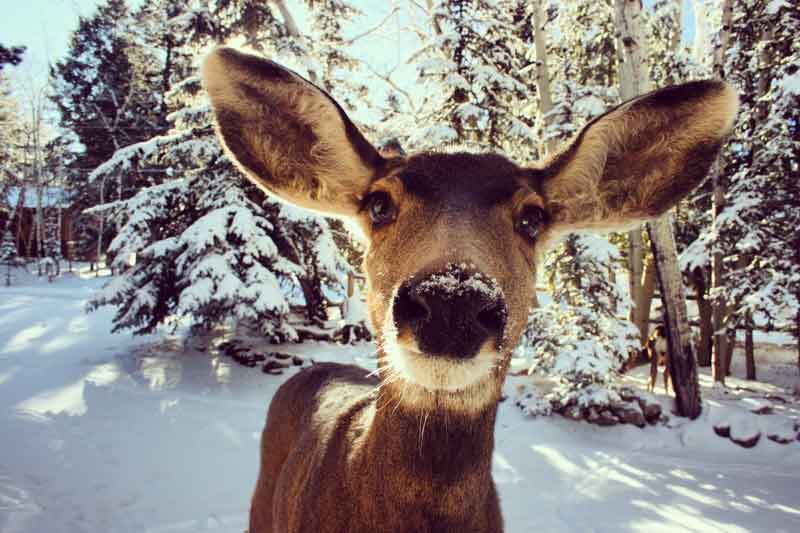
White-Tailed Deer
Another very common mammal that simply rides out the winter is the white-tailed deer. No dens, burrows or nests for these animals. They continue roaming and looking for suitable places to find food to keep them sustained throughout the season, which isn’t easy as food is much harder to find. There are less green plants above the ground to chew on, and deciduous trees no longer have their leaves.
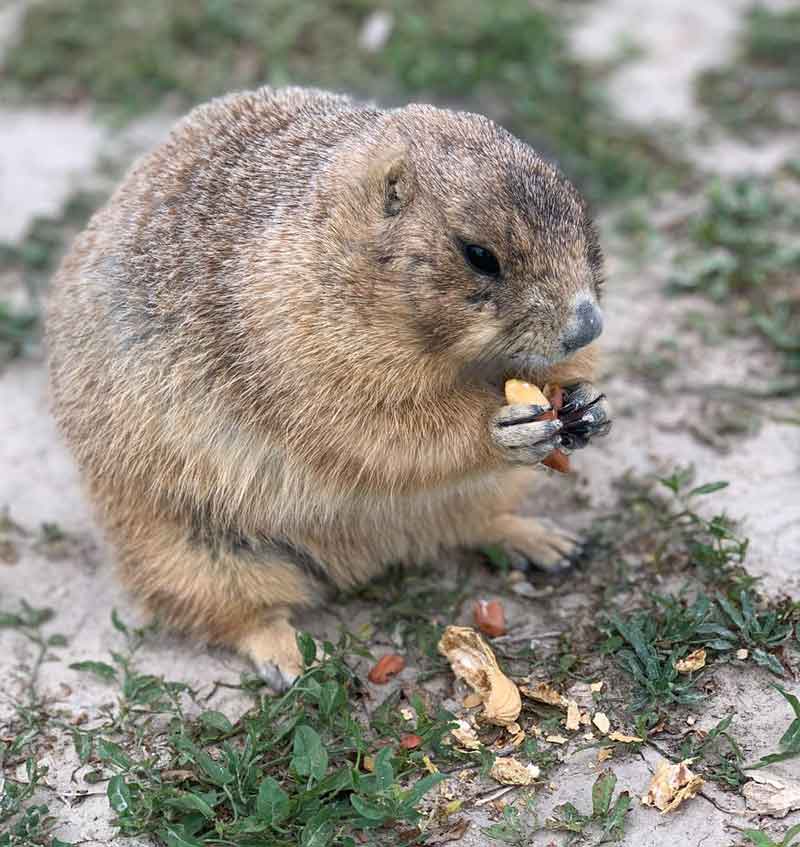
Groundhogs & Chipmunks
Not all mammals will stay active during the season. Others like groundhogs and chipmunks use a different strategy: hibernation. This is a sleep-like state in which animals reduce their energy use, activity and temperature to pull through the winter months. They use much less energy this way and don’t have to worry about braving the cold in search of resources.
The reason we do not often stumble across hibernating animals is because it wouldn’t make much sense for them to do so out in the open. Being pretty much asleep on the ground in the open is just another way of asking owls and hawks to eat you. So they will typically make burrows and dens to hide away in while they hibernate.
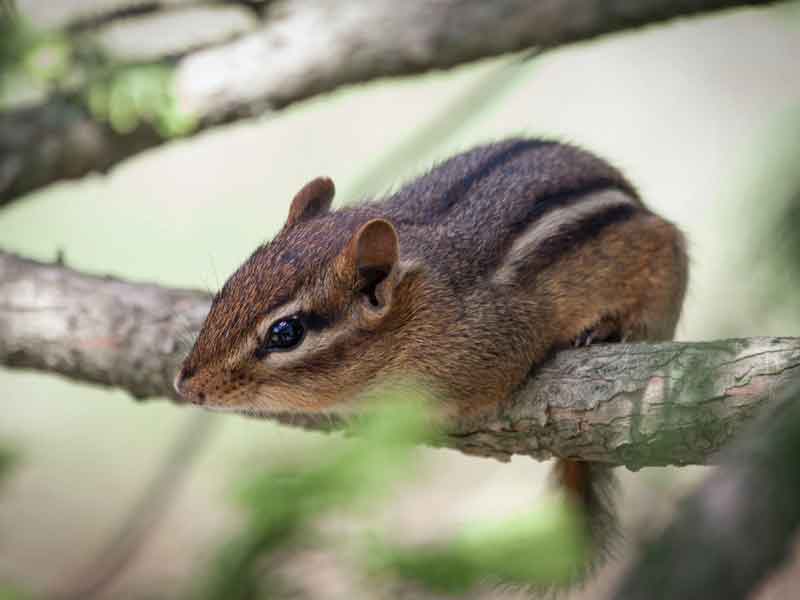
Being below the ground is also a warmer place to be and allows animals to avoid the cold unless they have to find food. One of the best reasons to do this is that during the winter the snow cover acts as a further layer of insulation from the cold and wild animals. Being away from the wind, even under the snow, is a better place to be than out in the open. If you have ever built a snow fort or spent time inside an igloo, you’ll know that snow can do a surprisingly good job of keeping you warm.
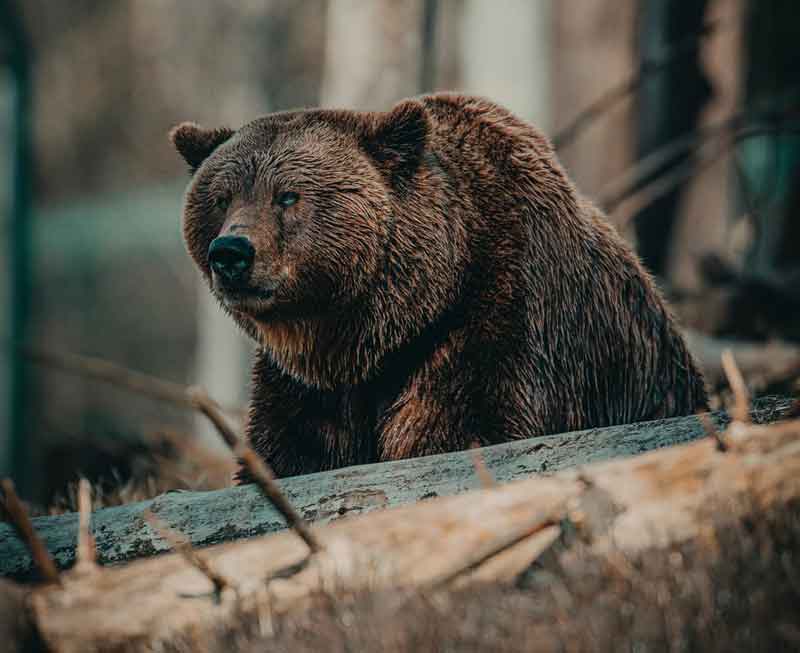
Bears & Badgers
Bears and badgers on the other hand go into a state called torpor. Unlike hibernation, it is not as deep nor does it last as long. It has similar effects, such as reduced energy use and temperature, but the animals will frequently wake up and be semi-active. Our state species of bear, the black bear, is found in the northern part of the state and will make or find a den to shelter in. During this time, they go into torpor, seeming to be asleep but able to be roused when needed.
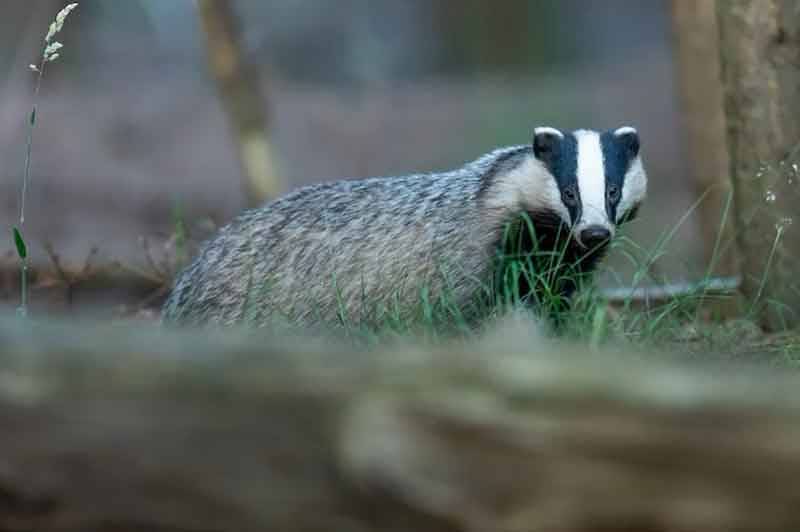
Here at the Garden, mammals can quickly become pests in their search for food during the fall, winter and spring. Chipmunks in the garden dig up tulip bulbs to eat! Deer will browse evergreens, hostas and spring foliage, which can greatly harm our plant displays. Woodchucks can dig up and eat vegetables and their burrows stick out among the cultivated beds. Rabbits are frequent munchers, eating woody material which can harm trees and shrubs during the winter. They can even damage some of the power cords for WPS Garden of Lights! Mice will try to get into our buildings, which is common for many of us. They want to go where it is warm and search for any scraps that might be left behind.
Come back to the blog the week of December 7! We’ll talk about what birds, bees, butterflies and bugs do when winter rolls around.
Sources
- Dnr.wisconsin.gov – Wildlife Damage
- Eekwi.org – Chipmunks
- Wildlifedamage.uwex.edu – Chipmunks & Ground Squirrels
- Lpzoo.org – Squirrels
- Postcrscent.com – Wildlife Winter Adaptations
- Scottishwildlifetrust.org.uk – Torpor and Hibernation
- Nationalforests.org – Bears and Hibernation
- UWM.edu – Dragonflies
- Ironmountaindailynews.com – Dragonflies
- Fyi.extension.wisc.edu – Butterflies
- Madison.com – Frogs
- Wisconsinbumblebees.entomology.wisc.edu – Bumblebees
- Eekwi.org – Ladybeetles




